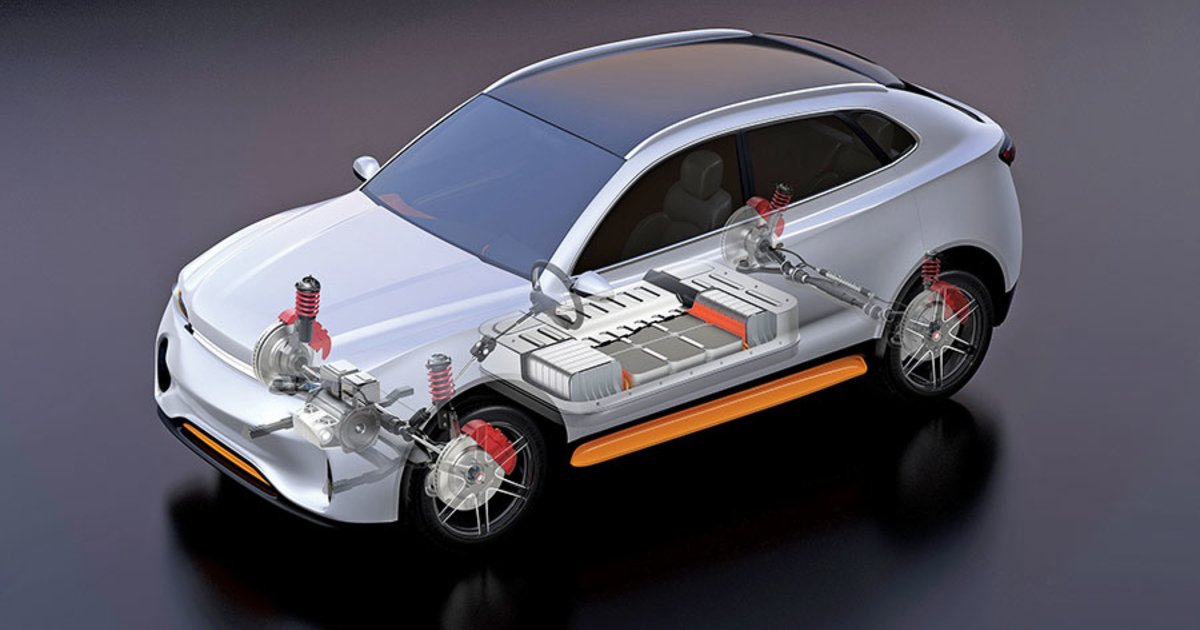
Amid growing buyer concerns over battery costs, some wholesale auction companies are reworking their vehicle condition reports to better disclose battery health on used electric and plug-in hybrid vehicles.
ADESA Inc. is one of the latest to take that step as part of its plan to gear up for the substantial numbers of EVs expected in the wholesale market in the coming years. The auction provider in early September announced a partnership with Recurrent, an EV battery and range analytics company, to add a feature on condition reports that more clearly shows potential buyers an EV’s battery status in the form of what ADESA is calling a Range Score.
During the inspection process, Recurrent’s software analyzes a vehicle’s history and battery data and then generates a battery health score from 0 to 100. That number is displayed on the vehicle’s condition report on adesa.com along with a Range Score badge. A potential buyer can click on the badge to see more information, such as warranty details and expected battery performance, according to ADESA, the country’s second-largest vehicle auction company, which was purchased by Carvana Co. in the spring.
“Anybody that’s dealing with electric cars right now is getting a lot of questions about the battery, and making folks feel comfortable about the battery health is really important to selling them,” ADESA President John Hammer told Automotive News.
Since adding the feature, ADESA has seen a 7 to 9 percent lift in conversion — when cars offered in auction channels actually sell — on vehicles with Range Score badging compared with similar vehicles that don’t have it, Hammer said. ADESA did not disclose when it started using the badging and gathering that data.
“The other thing that we’ve seen is a lift in the prices that we get for them,” Hammer said. “We’re seeing $4,000 to $7,000 increases.”
Developing a more comprehensive battery health diagnostic tool is also a priority for Manheim, the largest U.S. vehicle auction company.
It is working on that with Spiers New Technologies, a battery life cycle management provider acquired by Manheim in 2021. Manheim is conducting battery health tests at six of its high-EV volume locations in California, Nevada, Pennsylvania and Washington and intends to expand the effort to other locations later, the company said in a press release.
The batteries of used EVs are tested for the state of their charge and energy capacity, and that data is used to create an overall battery health score that ranges from 1 to 5, according to Manheim. Those EV health details are included on condition reports for the vehicles tested and sold at those locations. Used EVs with a battery health score receive roughly five times more views and bids than those that don’t have one, the company said in the release.
Smaller auction companies also are working to provide more information about the health of used EVs to buyers.
Dealers will be more inclined to buy one if they can first read about the condition of its battery and other critical components, said David Aahl, vice president of North Bay Auto Auction in Fairfield, Calif. Aahl, who spoke during a panel on EVs at the National Auto Auction Association’s convention in Dallas in September, said the Silicon Valley-adjacent market where North Bay is located started seeing more EVs six or seven years ago. It’s since become clear, he said, that dealers are willing to stock used EVs as long as the wholesaler provides them with key vehicle details.
North Bay had roughly 200 to 300 2018 Teslas to sell last year. With dealership lots thinly stocked because of the coronavirus pandemic, dealers started buying the used Teslas, Aahl said. But they were more comfortable buying them when the auction provided certain details — for example, photographs of the car’s touch screen — in the vehicle’s condition report.
“The thing with the [EVs] is they’re like remarketing any other car, provided you give the consumer, the buyer — in this case, the dealer — enough information about it,” Aahl said.